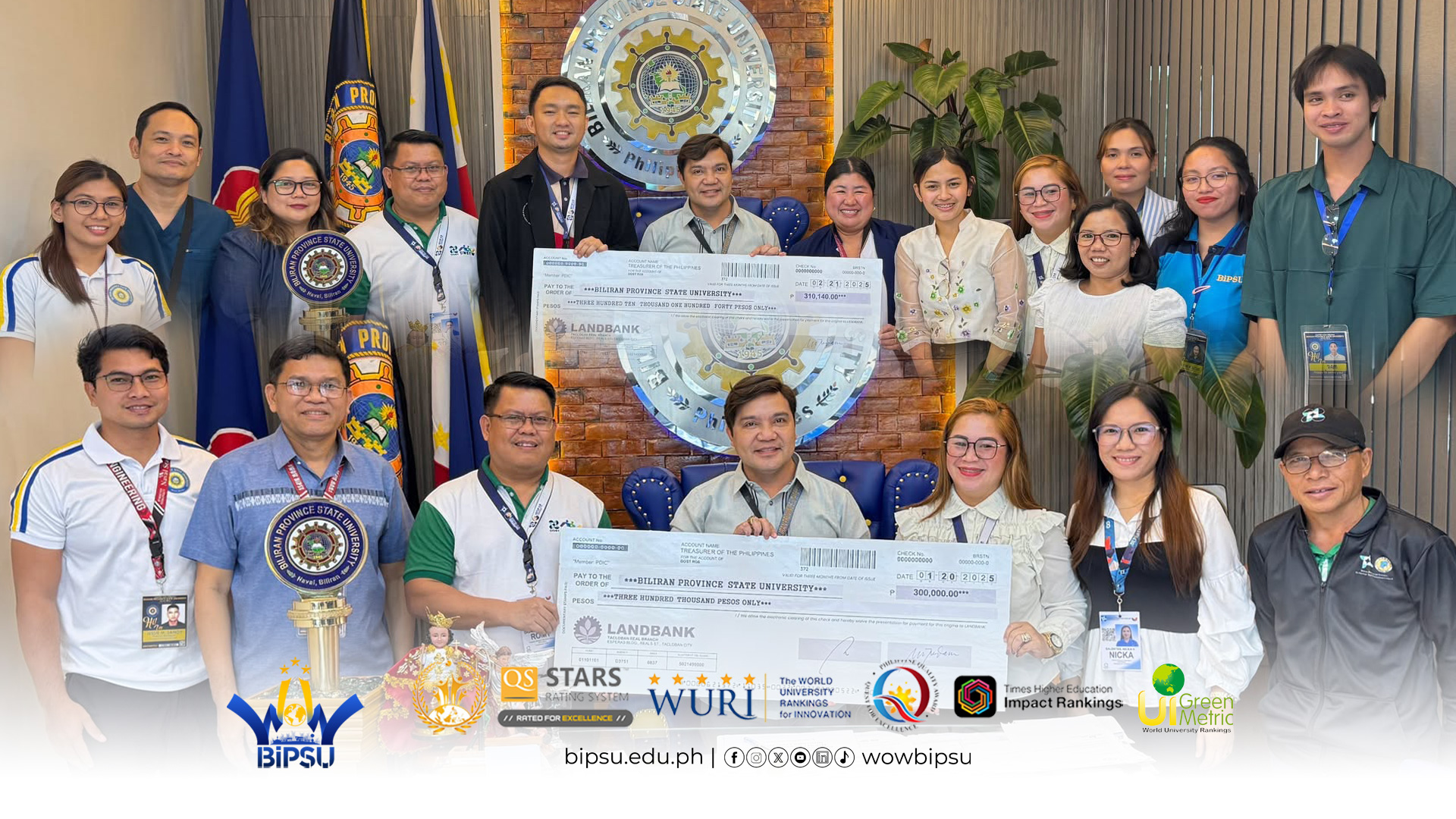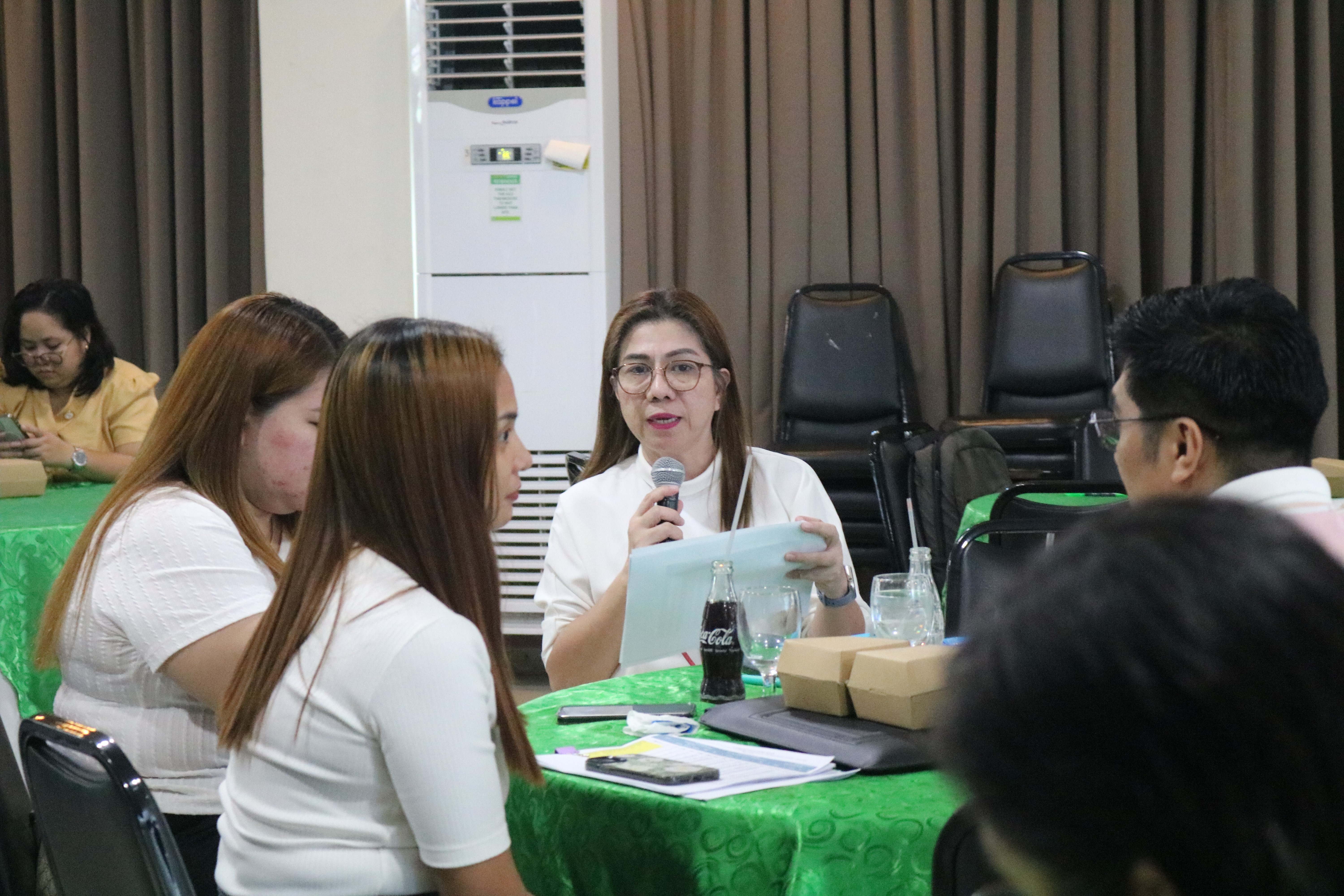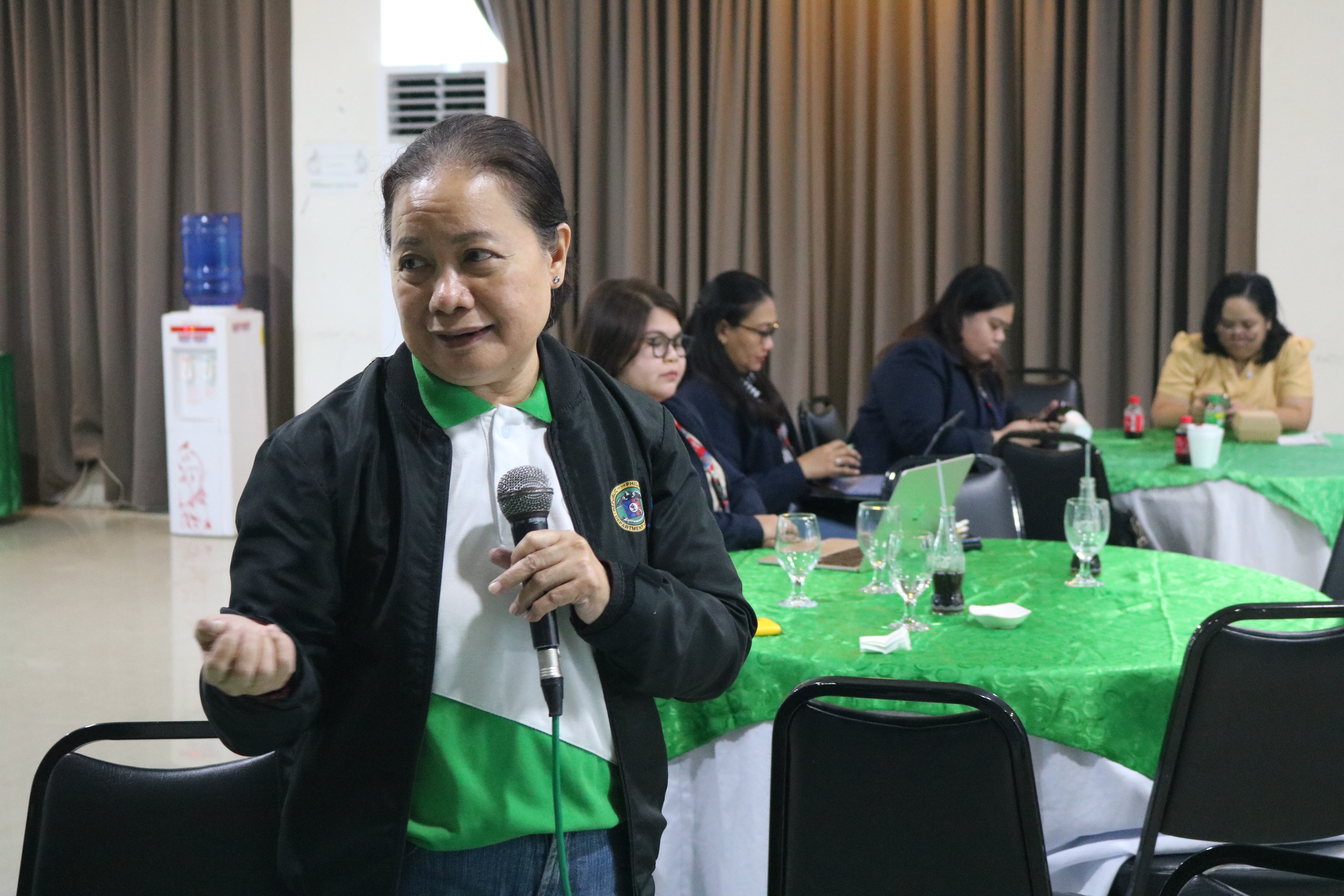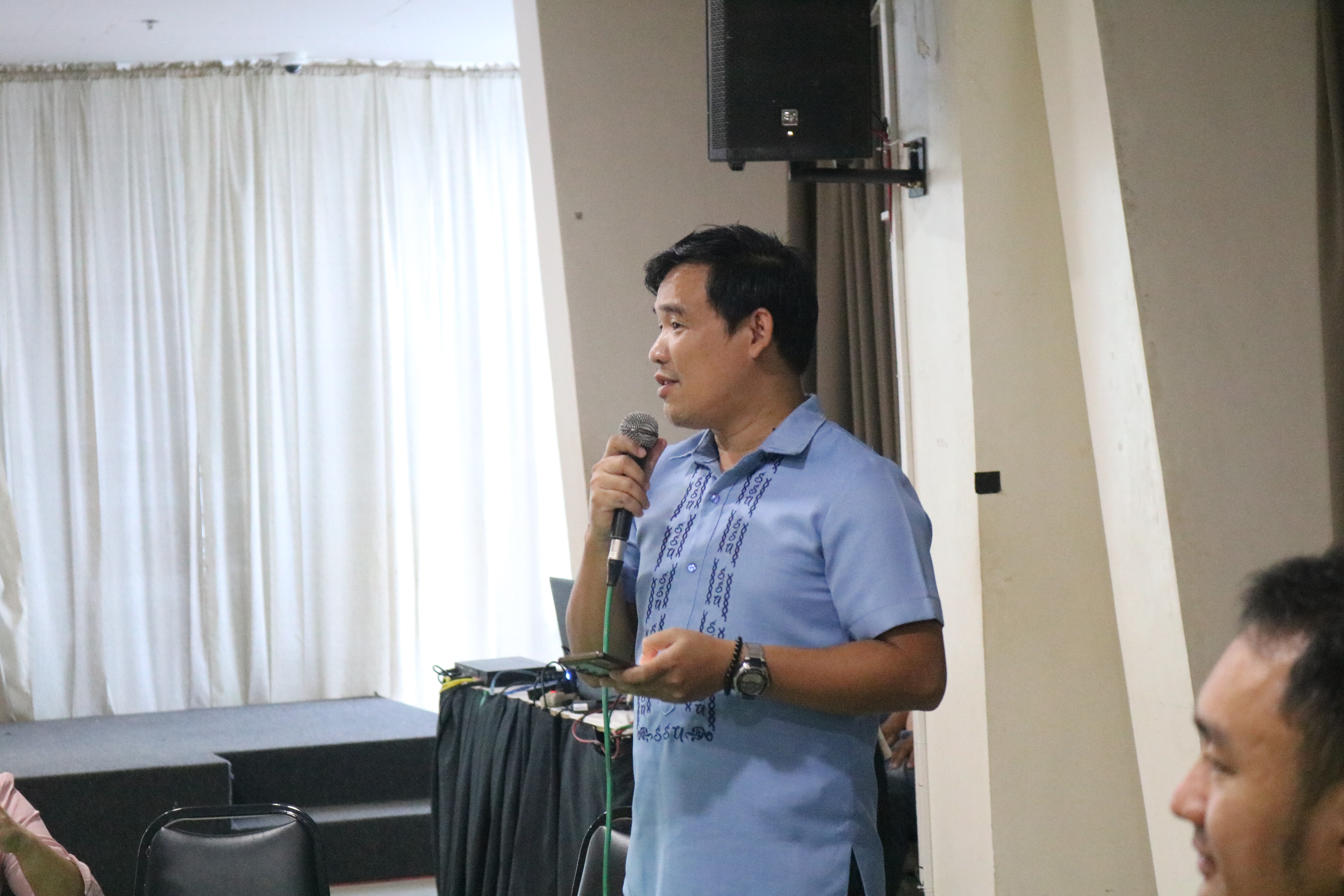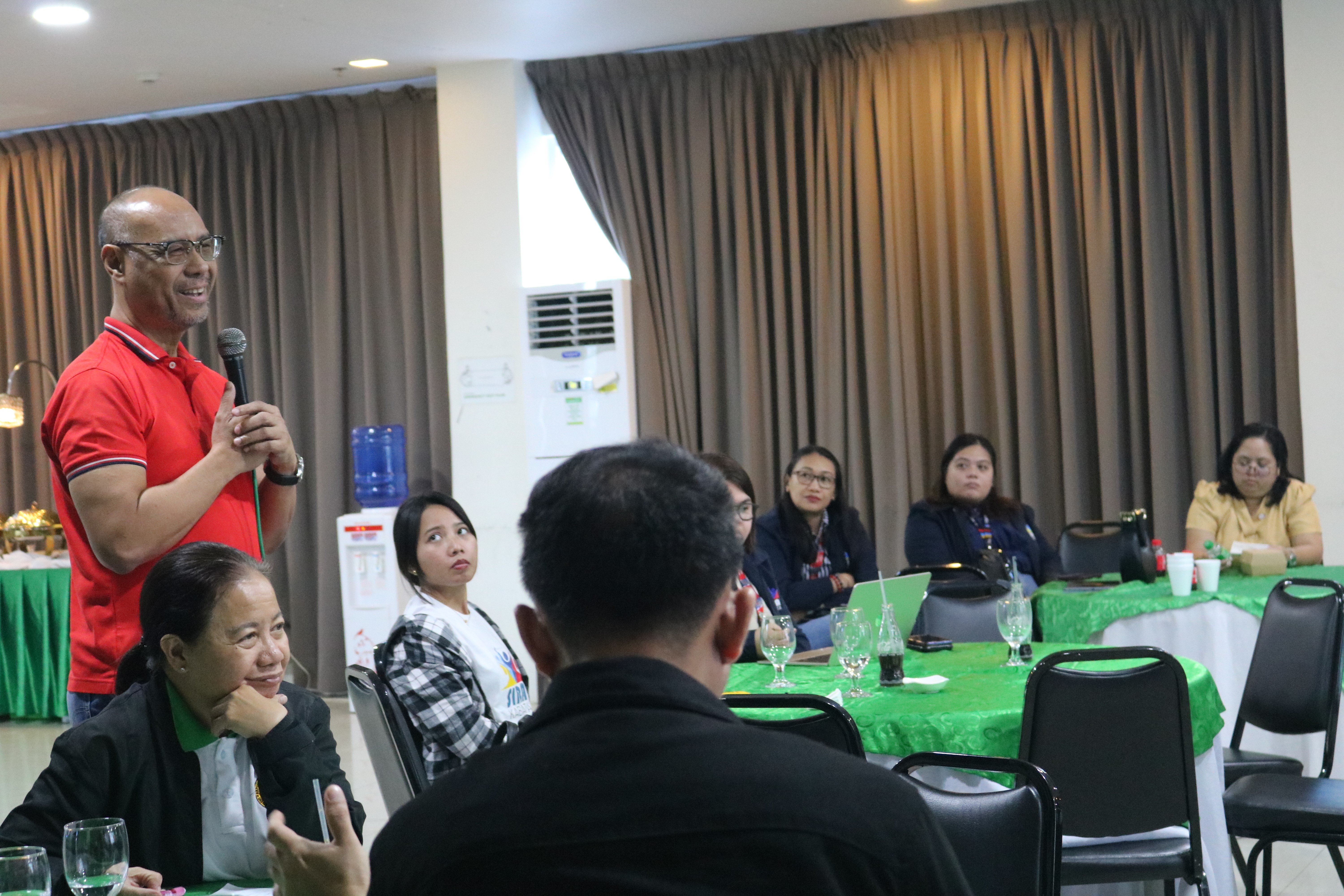Featured Videos
Latest News
- Details
- Written by Jovy Dia R. Saniel, Biliran Province State University, Research Utilization Committee
- Category: Latest News
- Hits: 934
The Biliran Province State University (BiPSU) has been awarded a ₱310,000 research grant from the Department of Science and Technology (DOST) to support a study entitled: “Psychological Stress, Suicidal Ideation, and Coping Mechanisms among Students in Selected Tertiary Academic Institutions in Eastern Visayas,”. The research is led by Dr. Pearl Irish V. De Paz, with Dr. Willard N. Riveral and Dr. Jovy Dia R. Saniel as research members, from the School of Nursing and Health Sciences of BiPSU.
As part of the Eastern Visayas Health Research and Development Consortium (EVHRDC)—a collaborative network of higher education institutions, government agencies, and research organizations, BiPSU continues to play an active role in advancing health research in region 8. This funding, is made possible through the consortium, highlights the university’s commitment to addressing pressing mental health concerns among students.
During a courtesy call at the BiPSU-Office of the President, the research team, along with Mr. Jeremy Jusay of the DOST-EVHRDC Secretariat and Biliran Provincial S&T Director Romeo L. Dignos, met with University President Dr. Victor C. Cañezo, Jr. to discuss the study’s significance. Conversations focused on how the research could inform mental health programs and policies that support student well-being.
The study’s findings are expected to contribute to greater mental health awareness, improved student support systems, and evidence-based interventions in tertiary institutions across Eastern Visayas.
- Details
- Written by Shellah Mae Santillan, LGOO II, DILG 8
- Category: Latest News
- Hits: 812
Tacloban City – In a concerted effort to enhance the delivery of Mental, Neurological, and Substance (MNS) programs and services in Eastern Visayas, the Department of the Interior and Local Government (DILG) Region 8 participated in the Operational Planning of the Mental Health Framework from March 11-14, 2025, at Hotel Alejandro, Tacloban City. 
The four-day planning workshop, organized by the Eastern Visayas Mental Health Council (EVMHC) through the Department of Health (DOH) Region 8, gathered key government agencies and health institutions to strengthen intersectoral collaboration, optimize resource mobilization, and develop strategic and innovative solutions for mental health service delivery. 
A key highlight of the event was the review of the EVMHC Strategy Map, reinforcing its vision of “Marig-On nga Panhunahuna para ha tanan Sinirangang Bisayas” (A Strong Mindset for All in Eastern Visayas). Through interactive discussions and design thinking methodologies, stakeholders identified key challenges and developed prototypes for mental health interventions, focusing on service accessibility, public awareness, crisis resilience, and social protection for individuals with MNS conditions. 
The event concluded with an Action Planning Session, where participants outlined concrete steps for strengthening mental health programs at the regional and local levels. With DILG’s active involvement, the initiative is expected to support policy integration, funding allocation, and capacity-building efforts to institutionalize mental health services across LGUs in Eastern Visayas.
With strengthened collaboration among agencies, the operational planning is set to drive long-term improvements in mental health programs and services, ensuring a more responsive and inclusive approach to MNS service delivery in the region.
#SerbisyoRehiyonOtso
- Details
- Written by Lovely Rose A. Bolante, Project Technical Staff, Samar State University
- Category: Latest News
- Hits: 639
Catbalogan City, Samar – As the DOST-funded research project, "Factors Associated with Adverse Pregnancy Outcomes among Deliveries in Healthcare Facilities in the Province of Samar, Philippines," approaches its conclusion, a “Result Validation and Dissemination Forum” was held on February 27, 2025, at the Samar State University Convention Center. The event aimed to present and validate key findings with relevant stakeholders, ensuring that the study’s outcomes align with real-world healthcare experiences and contribute to evidence-based policies and interventions for improving maternal and child health in Samar.
Samar State University (SSU) President, Dr. Redentor S. Palencia, opened the forum with a message reaffirming the university’s dedication to research that addresses pressing public health challenges. Representing DOST-EVHRDC Regional Director Dr. Lucia P. Dauz, Mr. Jeremy Jusay of the DOST-EVHRDC Secretariat delivered an inspirational message, emphasizing the crucial role of scientific research in shaping health programs and policies.
The Project Team, led by Dr. Sherrie Ann C. Labid, with project members Dr. Sheriah Laine de Paz-Silava from UP-Manila and Dr. Leodoro Labrague from the University of Washington, spearheaded the discussion of research findings. Their presentation highlighted various factors influencing adverse pregnancy outcomes in Samar, providing a comprehensive analysis of healthcare facility data. Stakeholders played an essential role in validating the findings, ensuring they accurately reflect maternal healthcare realities in the province.

The forum brought together representatives from key organizations, including DOST-EVHRDC, the Provincial Health Office headed by OIC Provincial Health Officer Dr. Madeleine H. Ampatin, the Provincial Youth Development Office (PYDO) led by Ms. Ysabel Aquino, SIRAK Kabataan, the Dean of the Samar Island Institute of Medicine (SIIM), Dr. Noel L. Espallardo, the Director of SSU’s Advocacy on Gender and Women Advancement for National Development (SAGWAN), Dir. Charmaine R. Quina, the Department of the Interior and Local Government (DILG) Samar representative, Ms. Airene Nina Nacionales, Samar Provincial Hospital representatives led Dr. Rose Ann Daganzo , and the Calbayog City Health Office representatives led by Mr. Romeo Ortiz. Their active engagement underscored the importance of multi-sectoral collaboration in tackling maternal and child health challenges.
Providing expert insights on the study’s implications, Dr. Fidelita D. Dico, Project Consultant and Medical Officer at the Department of Health Regional Office VIII, emphasized the necessity of strengthening healthcare services and implementing policy-driven solutions to reduce adverse pregnancy outcomes.
In his closing message, the Vice President for Research and Extension Services of SSU, Engr. Mirador G. Labrador, underscored the significance of leveraging the study’s findings for evidence-based policymaking, ensuring that research translates into impactful interventions for maternal and child health improvement in Samar.
This forum was a crucial step in transforming research into actionable strategies for healthcare providers, policymakers, and community organizations. As the project nears completion, the insights gathered will inform concrete recommendations, ensuring that research findings contribute to tangible improvements in maternal and child health services across Samar.
- Details
- Written by Samar State University
- Category: Latest News
- Hits: 239



- Details
- Written by Georgie S. De la Cruz, DepEd VIII, Technical Asstant I
- Category: Latest News
- Hits: 695
The Department of Education (DepEd) in the Philippines observes a yearly "One Health Week" as part of its flagship health program, Oplan Kalusugan sa DepEd (OK sa DepEd). This week-long event aims to promote holistic health and well-being among learners and DepEd personnel. The theme for this School Year’s One Health Week is “OK sa DepEd ang Eskwelahang Healthy.” This reflects the DepEd’s commitment to intensifying school health programs under OK sa DepEd, as the means to ensure that schools become healthy learning institutions (HLI) or safe and healthy environments that promote the wellbeing and holistic development of learners. The One Health Week serves as a platform to highlight and implement various health programs under OK sa DepEd. This includes initiatives like the School-Based Feeding Program (SBFP), National Drug Education Program (NDEP), Adolescent Reproductive Health (ARH), Water, Sanitation, and Hygiene in Schools (WinS) program, Medical, Dental, and Nursing Services (MDNS), and School Mental Health (SMH).
One Health Week emphasizes the importance of collaboration and partnerships to ensure the success of school health initiatives. Schools are encouraged to network with local partners, including health providers, local government units (LGUs), and community organizations, to leverage resources and expertise. The One Health Week plays a crucial role in promoting the health and well-being of learners and ensuring a safe and conducive learning environment. It serves as a platform to:
- Raise awareness about health issues and promote holistic well-being
- Provide access to health services and strengthen partnerships
DepEd continues to strengthen its OK sa DepEd program and One Health Week initiatives to ensure that all learners have access to quality health services and a supportive learning environment. It is an important initiative that demonstrates DepEd's commitment to promoting the health and well-being of learners. It serves as a reminder that education and health are interconnected and that a healthy learner is a better learner.

